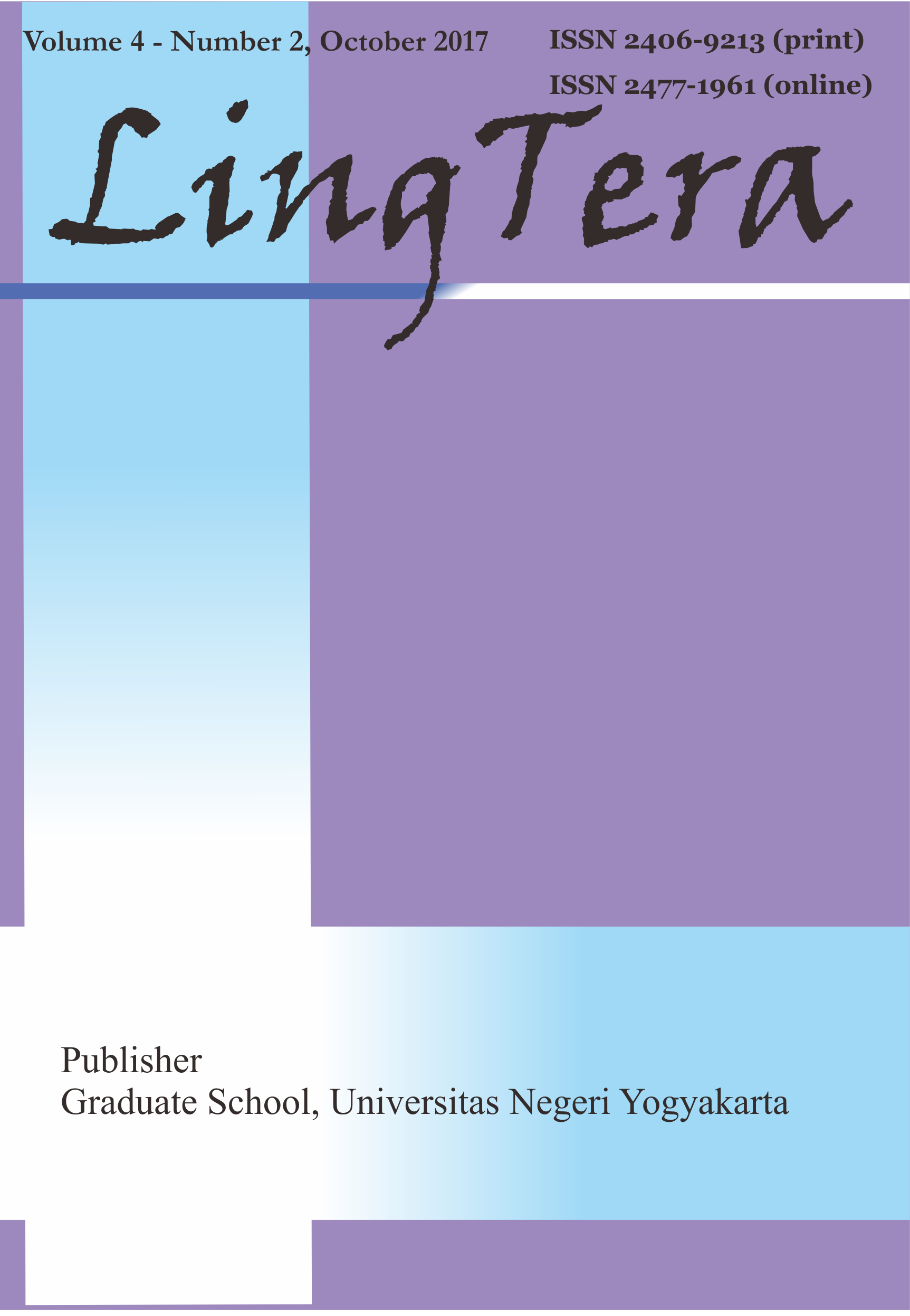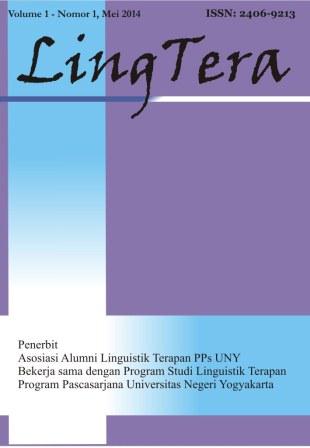Speech acts in Madagascar 3 (A film) and their application in ELT
DOI:
https://doi.org/10.21831/lt.v4i2.5527Keywords:
speech act, language function, context, utteranceAbstract
This research aims to: (1) identify and describe speech acts in the film of Madagascar 3: Europe's Most Wanted that suit to the language functions in KTSP and 2013 Curriculum for junior high school and (2) explain ways to apply the speech acts in ELT. This study employed the qualitative approach. The research object consisted of the utterances in the film. The data were collected through an observation and they were classified based on the speech act classification. The research findings reveal that there are many speech acts functions in the film suiting to the language functions in the curriculums. Directive speech act includes commanding and ordering, requesting, inviting, suggesting, prohibiting, and begging. Expressive speech act includes parting, thanking, congratulating, liking and disliking, greeting, apologizing, complimenting and admiring, agreeing and disagreeing, doubting, and refusing. Representative speech act includes convincing, informing, and giving fact or opinion. Commissive speech act includes promising and offering. The application of the speech acts functions in ELT is done by making use of the utterances to express the language functions in the curriculums.
Downloads
Published
How to Cite
Issue
Section
Citation Check
License
LingTera allows readers to read, download, copy, distribute, print, search, or link to its articles' full texts and allows readers to use them for any other lawful purpose. The journal allows the author(s) to hold the copyright without restrictions. Finally, the journal allows the author(s) to retain publishing rights without restrictions.
- Authors are allowed to archive their submitted articles in an open-access repository.
- Authors are allowed to archive the final published article in an open-access repository with an acknowledgment of its initial publication in this journal.

Psychology, Evaluation, and Technology in Educational Research is licensed under a Creative Commons Attribution-ShareAlike 4.0 International License.
Based on a work at https://petier.org/index.php/PETIER.










